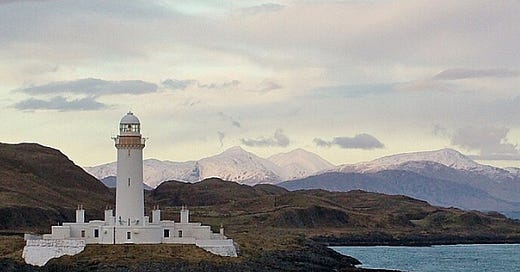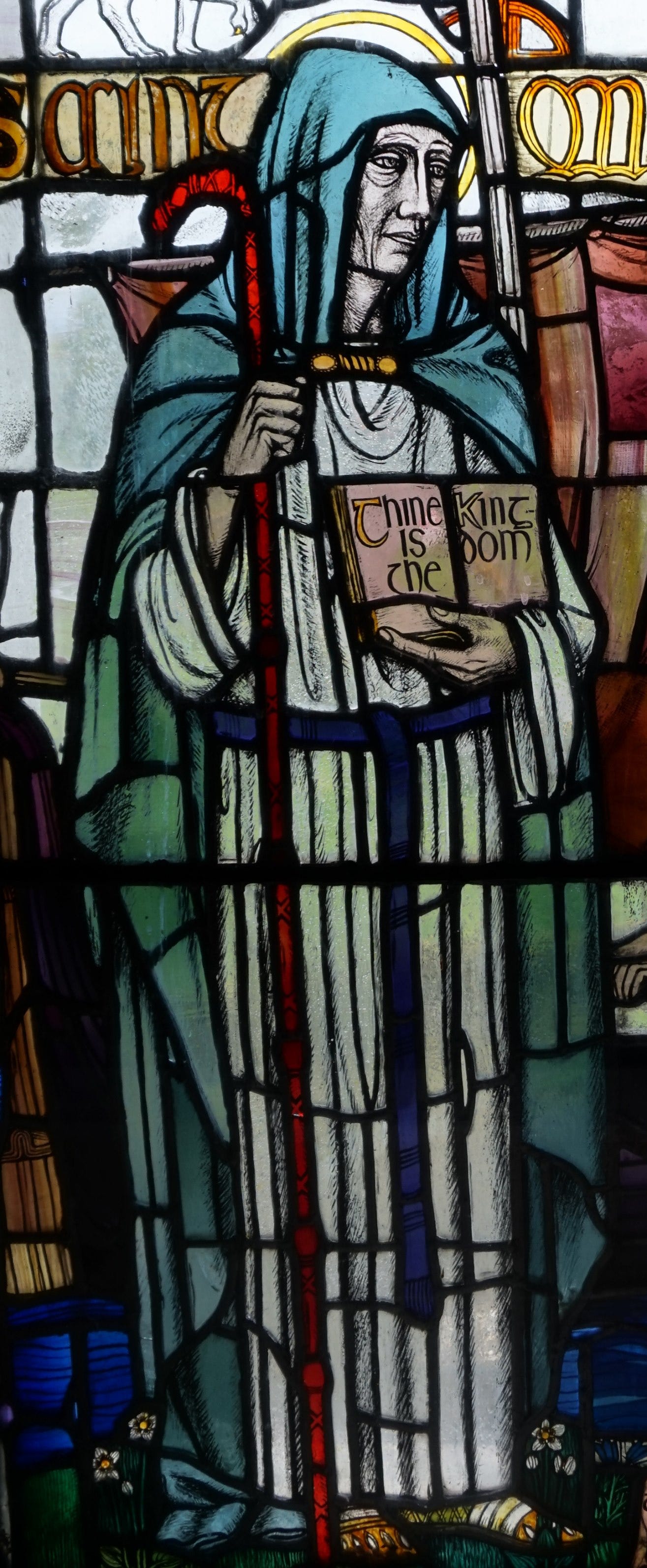You are receiving this today rather than the normal Friday as it seemed a shame to miss our patrons feast day. Therefore you won’t receive the normal email this coming Friday.
Moluag pure, brilliant,the sun of Lismore in Alba.
For the last 6 years volunteers, professional archaeologists and other local historians have been working in Lismore, an Island 8 miles off the coast of Oban to uncover the history of its association with St Moluag. Tradition has long pointed out that St Moluag, a native of the north east of Ireland and connected with the great Bangor Abbey of St Comgall crossed the Irish Sea and established his first Monastery on the Isle of Lismore in the 6th Century. In 2019 they discovered evidence of the monastic site which they were able to show was present around the 7th century bringing us close to the life of our saint. Later, after covid restrictions lifted, they found a metal working site close to the monastery which demonstrated its importance as an ecclesial centre. To find out more about what they are doing on Lismore click here.
Due to the sanctity of the site it was for awhile the Bishopric of Argyll, and later, on another part of the Island, a location for one of the Highland’s secret seminaries; begun in 1803, and lasting to 1828, located on what is now a private residence - Kilcheran House. You can go and visit (at the discretion of the owners) the graves of two of its Bishops who were laid to rest there.
St Bernard of Clairvaux no less tells us that St Moluag started 100 monasteries, and although we can speculate on that number - it is possible that St Moluag in addition to his followers did that - what we can say was that St Moluag had great zeal and fervour in his mission to the Picts, spreading the gospel east from Lismore towards Rosemarkie on the Ross-Shire coast and onto Mortlach in Banffshire. He would go north as well into the Western Isles and later churches in Aberdeenshire would be dedicated to him.
But why should his story resonate today beyond that of interesting history, and especially if your in another part of Scotland untouched by his work?
Just before the ascension of Jesus, he told the Apostles that they were to spread his gospel to all corners of the world. Then, the Holy Spirit was sent forth to baptise believers and emblazon in them the varying gifts and Offices that will build up the Church. Some, he would make Apostles, others Prophets, but others yet as Evangelists. Through the Spirit the Church has with great fervour in times past sent its missionaries to all corners of the world - including Scotland.
To further this and bring all divine goodness through it, He made it possible for us to become Saints, who, would not just bask in the Divine Light but be made co-operators with God. As Origen said:
“But not the high priest [Christ] alone prays for those who pray sincerely, but also the angels . . . as also the souls of the saints who have already fallen asleep” (Prayer 11 [A.D. 233]).
For as God showed Onias, in the Book of 2 Maccabees 15: 12-15 that:
And Onias spoke, saying, ‘This is a man who loves the family of Israel and prays much for the people and the holy city—Jeremiah, the prophet of God.’
This man, who loved Israel, the great Prophet Jeremiah, who by the time of this book was long dead, but present with God as co-operator for the salvation of his city. So to can we say that St Moluag, sent to this land, to share the gospel, establishing many monastic communities and ultimately dying here, continues his mission in the Light for modern day Scotland. As CCC 2683 tells us; ‘their [Saints] intercession is their most exalted service to God’s plan’. St Moluag did much in his life-time but like St Dominic at the end of his life he would surely say: ‘Do not weep, for I shall be more useful to you after my death and I shall help you then more effectively than during my life’.
I am sure I am preaching to the choir here when I say we all want to see Catholicism grow in Scotland once again, like the great tree in Jesus parable, and so let’s ask for the prayers of St Moluag on this day, and remember our other Scottish Saints who are so focused on this land in the will of God.
By Eric Hanna
*You can learn more about St Moluag here from our tame academic, Carly McNamara*.



